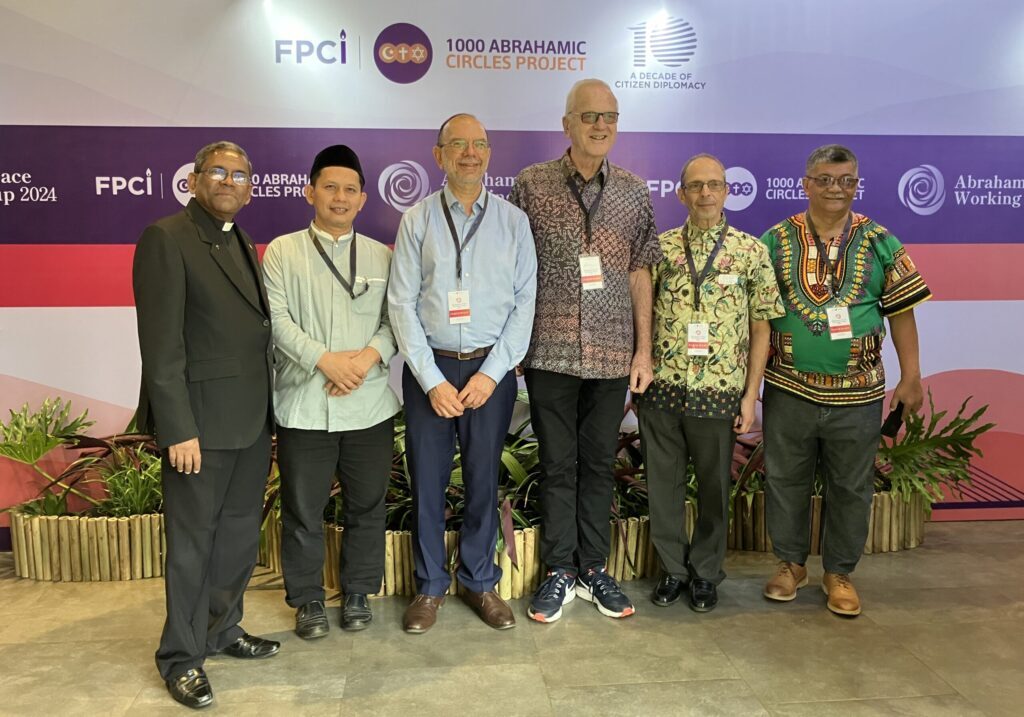Australia/Israel Review
The Last Word: Cairo Dreaming
Jun 29, 2009 | Jeremy Jones
Jeremy Jones
If US President Barack Obama’s speech in Cairo on June 4 proves to be an historic event, I will be able to say without doubt where I was when he spoke.
It was my privilege to be invited to a gathering of representatives of many of Sydney’s Muslim and Arab communities, diplomats, analysts and journalists, where we were able to discuss expectations before the speech, observe each other as the president spoke and then share immediate impressions.
The choice of Cairo, in front of an audience including Muslim Brotherhood members, was seen as anything but accidental.
A far larger Muslim audience could be found in Indonesia, Pakistan or Bangladesh, while Turkey has an equivalent Muslim population. Egypt, unlike the other countries, is very much part of the Arab world, and the consensus in the room is that, of all the Muslim audiences which could have been addressed, Obama’s decision was that Arab Muslims needed most to hear his message.
When the speech began, it was clear that many in the audience were totally enthralled by the event, the speaker and/or the speech.
Much has been written elsewhere on some of the items in the speech which seemed to speak of sloppy research or deliberate massaging of facts to fit the arguments, but it is fair to say that the errors of commission did not have the effect of diminishing the overall impact of the speech or any of its serious themes.
The opening assertion of America’s duty to, above all, protect its citizens, introduced the delineation of people as for or against violent extremism and this theme was so unexceptional as to barely register before the audience.
The comments on Israel and then on “occupation” were seen as “progress” by individuals whom I know to be hostile to Israel’s existence, while even some of the better-informed critics of Israel noted the selectivity and questionable intellectual basis of his analysis of the reasons for Israel’s existence and legitimacy.
When it came to Iran, the feedback I heard was that America was saying if there were to be war, it would be Iran’s fault, but also that Obama had abandoned making distinctions between nuclear weapons based on whose arsenal they are in.
Perhaps the most stirring elements of the speech were in the calls for democracy, religious freedom and tolerance, with the comments on support for those who elect to wear a hijab helping to discredit any interpretation of this section as preaching Western or Christian moral superiority.
At the conclusion of the speech, in conversations at the gathering and continuing for many days in other forums, it became clear that in many ways we were living out the fable of the blind men and the elephant.
Some listeners heard a plea for Palestinians, but missed the references to Israel’s legitimacy. Some heard the support for wearing hijabs, but not for religious rights to non-Muslims in Muslim countries. Some highlighted the criticism of extremism, others the failure to urge Arab countries to make peace with Israel, and many noticed the relationship he was asserting with religion (rather than with its adherents) while missing his strong affirmation of America’s values and principles.
But overwhelmingly, the message heard was one of hope. Forget the details, or even the content, listen to the tenor and tone – we can have a better future – was a response I heard from people of vastly differing political, cultural and religious affiliations.
The message was that the President of the USA had a vision of a more peaceful, fairer world and that Muslim majority states were being invited to be part of it.
In the immediate aftermath of the speech, the people of Lebanon have given cause to support the optimistic vision, while the rulers of Iran and Palestinian leaders have provided brakes on any enthusiasm. We have all been reminded already to assess our “hopes” against the reality of those whose vision is the opposite of President Obama’s.
Tags: Australasia, Indonesia






